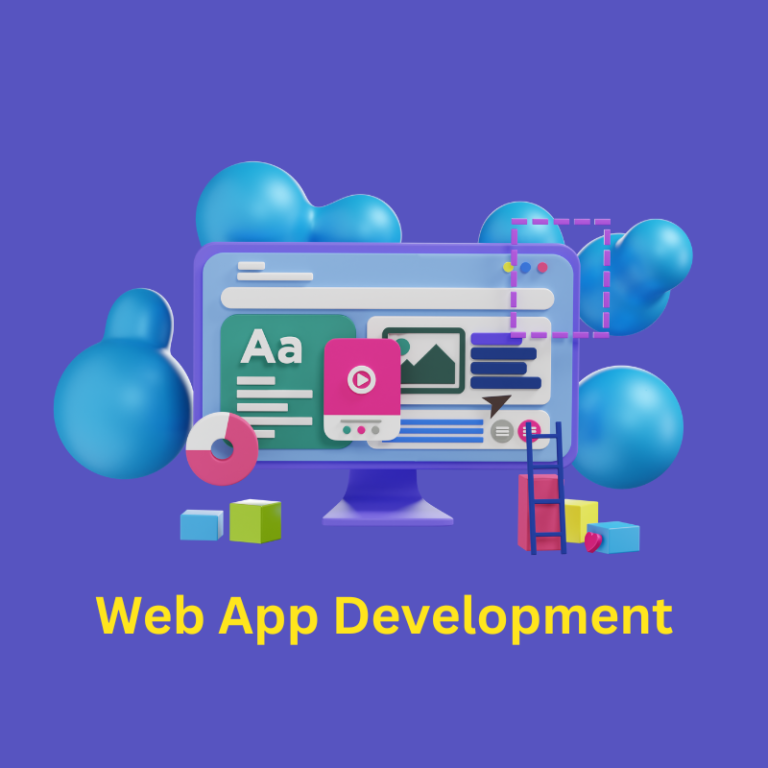Everything About React Native for App Development
Are you a developer looking to create a mobile app but not sure where to start? You might be interested in React Native. React native for app development has a fast-growing community of developers, and with its wide range of third-party libraries and tools.
It is one of the most popular frameworks being used today for developing hybrid apps, meaning apps that run on both iOS and Android. React Native lets developers write code once and deploy it easily across both platforms.
In this blog post, we’ll look at how to get started with React Native for app development and explore some tips for success when using it for app development. So read on if you’re curious about leveraging React Native for creating your own mobile applications!
FdeveloperAlso, do check the full react-native guide to know more!
What is React Native?
React Native is an open-source mobile application development framework created by Facebook. It is based on React, the JavaScript library that developers use to create user interfaces (UIs).
React Native enables the development of native apps for both Android and iOS systems. It also allows developers to write code just once and have it run across multiple platforms. Thanks to this technology, organizations can develop mobile applications faster and with reduced effort.
Its unique approach makes using React Native an appealing choice for many mobile app developers who are looking for a cost-effective, streamlined way to build top-quality apps quickly.
In addition, react native for app development uses the same programming language across both platforms, making it easier for developers who want to create products with both iOS and Android compatibility. All in all, React Native is a powerful tool for those looking to build efficient mobile apps efficiently.
How Does it Work?
React Native works by using components that are written in either Java or Objective-C which are then translated into JavaScript code. This code is then run on the device, allowing the app to access hardware features such as GPS or camera without having to write any additional code. Additionally, since all the code is written in JavaScript, you can use tools such as Node Package Manager (NPM) to quickly install third-party libraries or plugins which will help improve your app’s functionality.
Why Should You Use React Native for App Development?
React native for app development is a great choice if you want your app to be both visually appealing and user-friendly. Its declarative API allows you to focus on the features of your app. It also results in less code needing to be written overall. It has excellent performance capabilities, making it perfect for creating high-performing apps quickly and efficiently.
Its open-source nature means that developers have access to an active community who are always willing to help out with any issues related to development. Because of its reliance on existing web technologies such as HTML5 and CSS3. The learning curve associated with React Native is relatively low compared to other frameworks.
New Way To Develop Mobile Applications
React Native for app development is an open-source mobile application development framework created by Facebook. It’s a popular choice for app developers to produce high-quality apps. Let’s explore what makes React Native such a great choice for app development.
By using React Native For App Development, developers can create apps that have native look and feel across multiple platforms with a single codebase. React Native also provides various APIs that allow for the development of more complex applications such as geolocation, animations, and access to device features like cameras or accelerometers.
With react native, developers can build robust mobile applications quickly and easily while keeping costs low. This makes react native an ideal choice for businesses or individuals looking to develop mobile applications without having to dedicate a lot of resources.
React Native For App Development has several advantages over traditional app development methods including faster development cycles, fewer bugs, and better performance on both iOS and Android devices. One key advantage is that react native developers make use of existing web technologies like HTML, CSS, and JavaScript.
Benefits of React Native for App Development
React Native offers several benefits for app developers. First, it has strong cross-platform capabilities so you can easily deploy your app on both iOS and Android devices. This saves time because instead of having to build two separate versions of the same app. You only have to create one and then make small tweaks depending on the platform.
Moreover, running on native platform components makes apps built with React Native for app development faster than those built with other hybrid frameworks like Ionic or Cordova.
Drawbacks of React Native for App Development
There are some drawbacks associated with using React Native App Development as well.
- Unlike a traditional native app development tool like Swift or Java, there isn’t full support for all device features yet; this means that more complex features are difficult (or impossible) to implement in an app built with React Native.
- Due to its complexity and reliance on JavaScript code (which can get quite lengthy), performance may suffer if not implemented properly when building larger applications.
5 Tips for React Native for App Development
Developing a React Native app can be quite overwhelming, with all the components and complexities to consider. But with a few tips and tricks. You can streamline your process and produce an app that will mark the world of mobile development. What are some of the best React Native tips and tricks?
1. Get Familiar With The Basics
Before diving into the complexities of React Native app development, it’s important to understand the basics first. To get up to speed quickly, spend some time reading tutorials and guides about how to use the framework. You should also try out some simple projects from scratch so that you can get a feel for how things work in practice. This will help set you up for success when tackling more complex projects down the line.
2. Utilize Pre-Built Components
React Native comes with a suite of pre-built components that can be used in your app development process. These components are useful because they reduce the amount of code required to build certain elements such as buttons or text fields, which makes it easier to develop complex user interfaces in less time. Learning how to utilize these components correctly will save you lots of time and effort down the line when building more complex apps from scratch.
3. Make Use Of Third-Party Libraries
In addition to pre-built components, there are also a number of third-party libraries available for React Native app development which can further enhance your productivity by reducing the amount of code required for certain tasks such as data fetching or authentication processes. Learning how to use these libraries correctly will not only save you time but also ensure that your code is more efficient and secure in the long run by utilizing well-tested solutions from other developers who have gone before you on their own app development journeys.
4. Test all Codes
To make sure all code is tested so bugs don’t affect your app when it goes live. This can make debugging much easier. Another tip is to try using an expo CLI where appropriate, as this allows you to preview rendering quickly without the complexity of running an emulator or simulator for each instance.
5. Understand the Difference
Invest in understanding the differences between web views and native coding so that you build a fully optimized feature set for users regardless of their platform preferences.
These tips will help you unlock the potential of React Native and leverage it for a successful app!
Conclusion
With its strong cross-platform capabilities, ease of use, ability to produce high-quality apps, and hot reloading feature, react native has become one of the most popular choices.
React native for app development is an excellent choice for those looking to create applications that are both powerful and cost-efficient. React Native offers many advantages over other frameworks such as Flutter or Xamarin when developing mobile applications.
It bridges the gap between native development and web-based apps, with built-in features such as push notifications, analytics, and access to both iOS and Android marketplaces.








